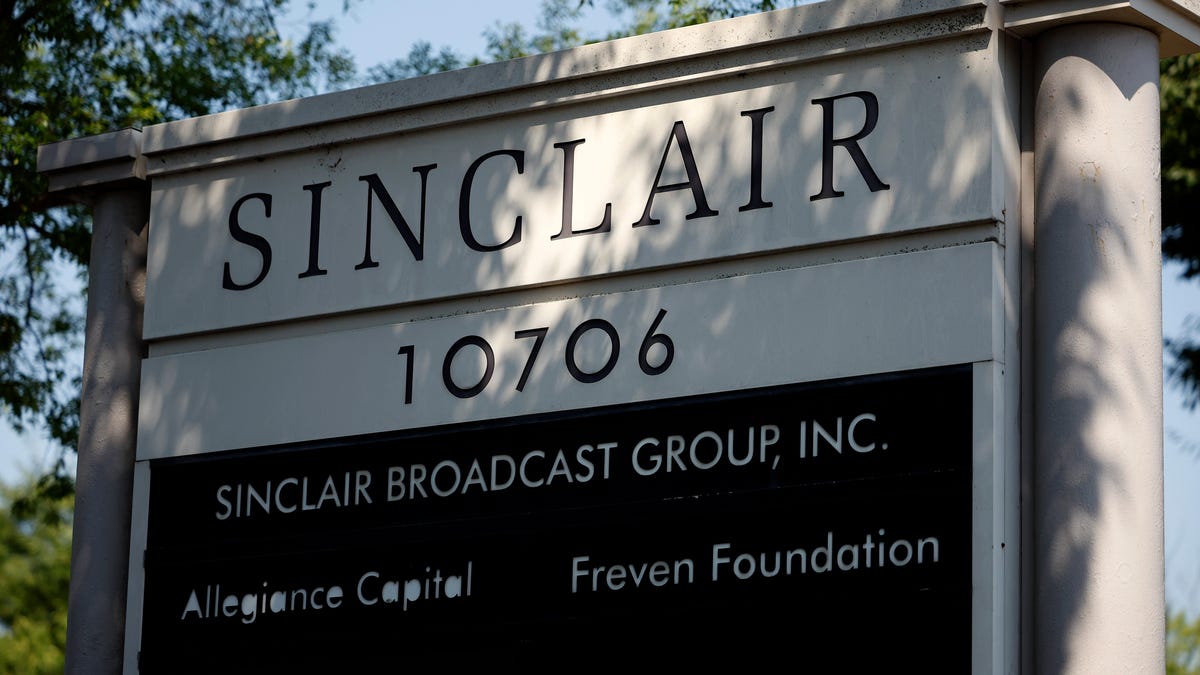
TV and newspapers: Detroit media history
The Detroit Free Press has been publishing since the mid-19th century.
Both companies have media holdings in Michigan, but Channel 7 would be a big prize.While the Scripps statement didn’t rebuff Sinclair, it also didn’t welcome a deal, either.A potential deal also asks the question: How much media should one company own?
Sinclair — one of the larger owners of U.S. television stations — disclosed an 8% stake in smaller rival, E.W. Scripps, opening the door to a deal between the broadcasters and raising questions about the future Detroit station WXYZ-TV.
Both companies have holdings in Michigan, and Channel 7 would be a big prize.
“Who knows for sure if it’s going to go through,” Tim Kiska, a communications professor at the University of Michigan-Dearborn, said on Tuesday, Nov. 18. “But Channel 7 has been such an important part of Detroit’s cultural landscape.”
The station signed on the air in 1948, with just over 10 hours of programming. It was the second television station in Detroit and Michigan, following WWJ-TV, which is now WDIV-TV (Channel 4).
In addition to what happens to the Scripps-owned ABC affiliate, a potential broadcast merger also asks the question: How much media should one company own, and what kind of regulatory limits, if any, should there be on media control?
Calls to WXYZ’s newsroom were referred to Scripps’ leadership in Cincinnati.
Scripps, which is based in Cincinnati, responded on Monday to Sinclair by saying that its board and management are focused on “driving value” for shareholders and will “evaluate any transactions and other alternatives.”
While the Scripps statement didn’t rebuff Sinclair, it also didn’t welcome it.
Scripps added that its “board and management are aligned on doing only what is in the best interest of all of the company,” and would “protect the company and the company’s shareholders from the opportunistic actions of Sinclair or anyone else.”
The move comes as part of other efforts to consolidate and as the Federal Communications Commission considers whether to ease rules limiting the number of television stations a company can own.
It may be one more way the news media is changing. The Free Press and News, for instance, which have been in a joint operating agreement for years, are ending the deal next month.
Sinclair’s SEC filing
In its SEC filing on Monday, Nov. 17, Hunt Valley, Maryland-based Sinclair said it acquired 8.2% of Scripps Class A shares in the open market for $15.6 million. It also noted it had been in discussions with Scripps for several months for a deal.
According to some reports, a deal could take up to a year to be completed.
Part of the reason why there has been news industry consolidation is to take advantage of efficiencies and scale to lower costs, as audiences decline and advertising revenues dry up.
The industry also faces competition from streaming services, like Netflix.
And on Tuesday, Nov. 18, a U.S. District Court ruled that the tech company Meta, formerly Facebook, did not break the law when it bought its rivals Instagram and WhatsApp, a setback to put limits on tech giants that are also competing with news companies.
If there were a deal, Scripps shareholders would receive a stake in the combined company, which, according to Sinclair, would be to their financial advantage to accept. After the SEC filing, the Scripps stock price soared, closing Monday at $4.28 a share; Sinclair closed at $16.87.
Sinclair, in its filing, suggested a merger would make both companies more competitive and boost longer-term value and efficiencies, including more than $300 million in annual savings.
Translation: There likely would be costs and job cuts.
Sinclair owns, operates or offers services to about 180 stations; Scripps, about 60.
Sinclair’s operations in Michigan include WWMT-TV in Kalamazoo, Battle Creek and Grand Rapids; UpNorthLive in Traverse City, and MidMichiganNow in Flint, Saginaw and Bay City. Scripps, in addition to WXYZ, operates WMYD also in Detroit, Fox 17 in Grand Rapids and Fox 47 News in Lansing.
News industry consolidation
But Sinclair’s announcement also comes as the broadcaster, which is known for its conservative-leaning editorial stand, draws public scrutiny and criticism for news decisions that appeared one-sided.
Scripps still could take measures to try to block a deal or make others.
Scripps, for instance, could consider sales or trades of individual stations, like WXYZ, with other broadcast companies, but it also potentially faces pressure from shareholders who seek to maximize their holdings and financial returns.
In addition, the Sinclair deal speculation comes as other broadcasters seek to consolidate.
Nexstar aims to acquire Tegna — which was spun off from Gannett, the former name of the company that owns the Free Press — in a $6.2 billion deal that also faces regulatory approvals and limits on station ownership.
The FCC, for now, limits a station’s ownership to reaching 39% of households.
But increasing the reach of these companies raises concerns for some about editorial voice. Both Sinclair and Nexstar, for instance, recently refused to air “Jimmy Kimmel Live!” on their ABC-affiliated stations because of Kimmel’s comments about Charlie Kirk, who was killed.
And a study, “Local News and National Politics,” published by Cambridge University Press in 2019, found Sinclair stations, compared with others owned by other companies, had more coverage on national politics and tended to give reports a more conservative slant.
Kiska, who earlier in his career worked at the Free Press, pointed out that media consolidation has been happening over several decades. He worked for the Detroit newspaper when it was part of a much smaller chain.
And, he said, the outcome of consolidation is uncertain.
It remains to be seen, Kiska said, how much local control will stations have to make their own decisions, and what sort of influence the corporate owners might seek to exert on what, and how, news is covered.
Contact Frank Witsil: 313-222-5022 or fwitsil@freepress.com

